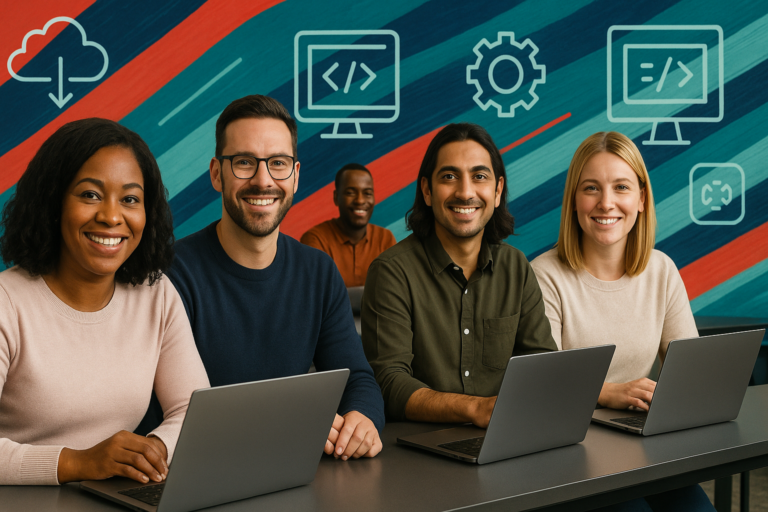Tuvimos el placer de entrevistar a Nofar Lupo, Wawiwa’s Customer Success Manager, who shared her valuable insights on the significance of accreditation in tech training programs.
Meet Nofar
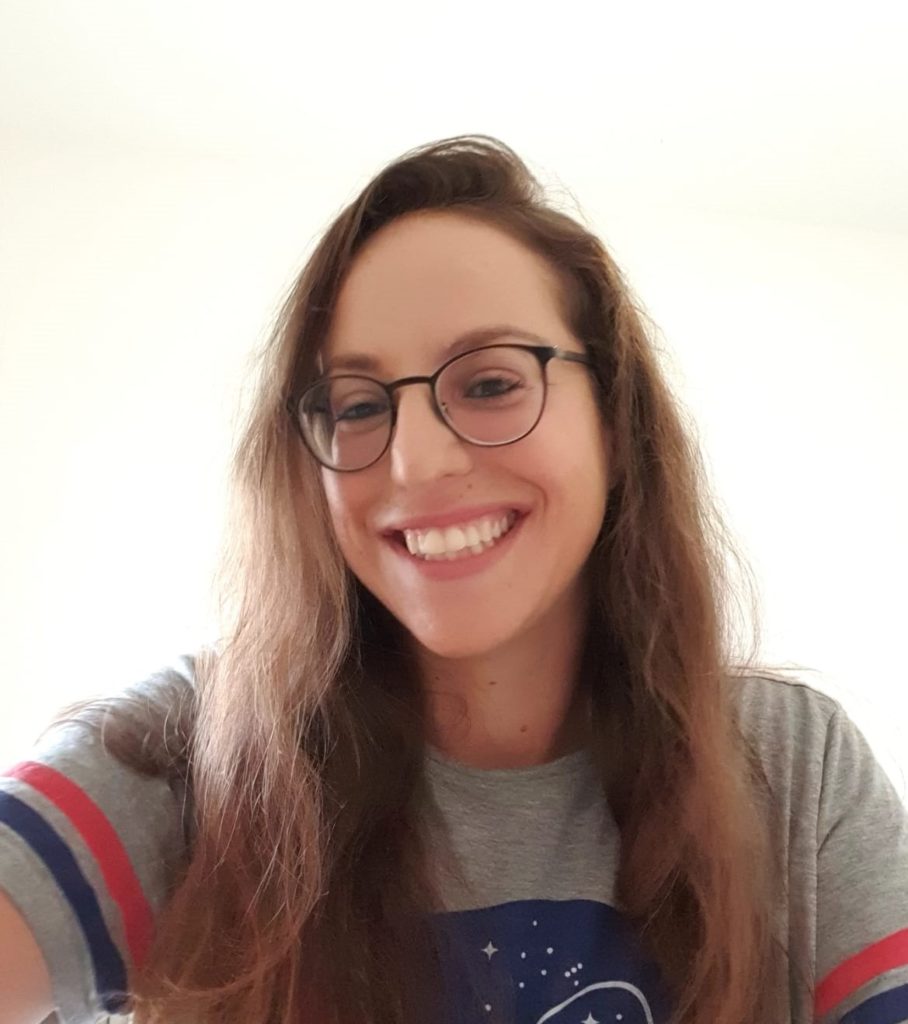
Nofar Lupo brings over a decade of experience in developing and instructing training programs across the academic and vocational sectors. With a strong background in e-learning methodologies, she has designed programs for diverse audiences and skill levels.
Before joining Wawiwa, Nofar served as the Director of Academic Development at Global University Systems (GUS), Europe’s largest higher education group. There, she was responsible for designing training programs in IT-related fields such as Artificial Intelligence (AI), Cybersecurity, and Data Science for academic institutions around the world, as well as establishing exciting collaborations between industrial companies and educational institutions.
At Wawiwa, Nofar focuses on customer success for our partners around the world, across over 6 continents. Nofar helps our university and training center partners receive accreditation for their centers and specific Wawiwa programs.
Nofar holds a Bachelor’s Degree in Psychology from the University of Derby and a Master’s Degree in Investigative Criminology from Bar-Ilan University. Her dissertation focuses on how malicious cyber hackers define themselves through their online activities.
Q: Hi Nofar, to begin, can you explain what “Accreditation” is?
Nofar: “Acreditación is a formal recognition that an institution or program meets certain quality standards set by an external body, often ensuring the credibility and integrity of the education provided. It’s like a stamp of approval that reassures students and employers about the quality of the education or training. In contrast, certification is more about the individual; it’s a credential that confirms a person has achieved a specific level of knowledge or skill in a particular area. So, while accreditation evaluates the institution or program, certification validates the learner’s competence.”
Q: Why do you believe that accreditation is important for tech training programs?
Nofar: “When I think of accreditation, the first two words that come to mind are trust and quality. Accreditation ensures that tech programs meet rigorous standards, equipping students with the knowledge and skills that are directly relevant to the tech industry. This is essential for graduates to be well-prepared to tackle the challenges they’ll face in their careers. Think of it as a seal of approval—like when you buy a product that’s certified for safety or quality, giving you confidence in what you’re purchasing. This is what accreditation does for educational programs; it certifies that the program meets high standards, so both students and employers know they’re getting something of real value.”
Q: Are there any significant differences in the accreditation process between different countries?
Nofar: “Yes, the process varies widely between countries, and sometimes even within regions of the same country. Some countries have centralized accreditation bodies, while others use regional or industry-specific agencies. The focus of accreditation can also differ; some places prioritize practical, industry-aligned training, while others emphasize academic theory. The target audience, whether domestic students or immigrants, also influences the approach to accreditation. This is why Wawiwa’s programs are designed to be flexible, allowing us to meet most of the accreditation standards we encounter.”
Q: What challenges do you typically encounter during the accreditation process?
Nofar: “The accreditation process definitely comes with its share of challenges. One of the biggest hurdles is navigating the complex regulatory requirements, which can vary a lot depending on the accrediting body and the region, as I mentioned.”
“It’s a tricky task to make sure the curriculum meets all the required standards while still staying flexible and relevant to current industry trends. For practical vocational courses, there’s often a need to go through a kind of ‘academization’ process to fit the accreditation demands, which can be challenging. And let’s not forget that we have to keep up the momentum for continuous improvement to meet ongoing accreditation requirements, especially in a field like technology that’s always changing.“
“However, to be honest with you, I enjoy working in this space because it pushes me to constantly learn and adapt, which is incredibly rewarding when you see the positive impact it has on students’ careers, futures, and the confidence it gives employers in hiring Wawiwa’s graduates around the world as the skilled professionals they are.”
Q: What lessons have you learned from past accreditation challenges that have influenced your current approach?
Nofar: “One of the biggest lessons I’ve learned is the importance of being well-prepared right from the start. I’m stressing this because, honestly, it can seem easy and straightforward in the beginning, but before you know it, things can pile up fast. Having everything organized, streamlining documentation, and keeping detailed records have been super important in showing accrediting bodies that we have a clear and solid vision, especially when they don’t know us personally.”
“Another key takeaway has been the value of building strong relationships with these bodies and staying on top of evolving standards. This has helped us adapt our programs to meet or even exceed expectations. The accreditation process can take several months, and it doesn’t always keep pace with the fast-moving tech industry. But the process also gives us a chance to really think about the students’ learning journey and continually improve our assessment methods.”
Q: How does Wawiwa support its local partners in achieving accreditation?
Nofar: “At Wawiwa, we’re dedicated to supporting our local partners throughout the entire accreditation process. We’ve achieved accreditation in many different countries, including the United Kingdom, Canada, and Australia. We help our partners in two major ways:”
“First, we ensure that our partners deliver high-quality, industry-relevant educational programs by actively collaborating with accrediting bodies worldwide. This global perspective allows us to tailor our programs to meet various regulatory standards, making sure they’re up-to-date and respected across different regions. By securing accreditation from reputable organizations, we help our partners build credibility, making it easier for them to market their programs as top-tier and compliant with international standards, giving them the confidence that they’re offering something truly valuable to their local markets.”
“Secondly, we provide all the resources and hands-on guidance needed to navigate the local accreditation process. This starts with helping our partners understand the specific requirements for their region, and then we work closely with them to align the curriculum with local educational and industry needs, ensuring all materials are current and relevant. We also assist with the documentation process, sharing best practices to make sure all learning outcomes are met. Beyond that, we offer ongoing training and support to faculty and staff, helping them stay compliant and continually improve.“
“In short, we’re with our partners every step of the way, making sure they are well-equipped to achieve and maintain the accreditation that sets their programs apart.”
Q: Can you share a recent example where Wawiwa successfully helped a partner secure accreditation?
Nofar: “We’ve had a lot of success helping our partners get accredited in different countries, even though some processes can take a while—sometimes over six months. A recent example is our work with Greystone College in Canada. They got accredited by the Private Training Institutions Branch (PTIB), a regulatory body in British Columbia, this year, for our Data Analyst and Full-Stack Developer programs that they teach as part of their academic degrees, aimed mainly at international students in Canada. It was a detailed process, but we made sure to guide them through it smoothly, making things as easy as possible.”
“Another highlight for us was receiving Tech10 accreditation for our Full-Stack Developer Program from BCS, The Chartered Institute for IT in the United Kingdom. This really showed us that with the right support, even complex accreditation can be straightforward, and it gave us great insights into how we can keep improving for our students and partners.”
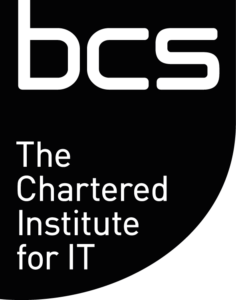
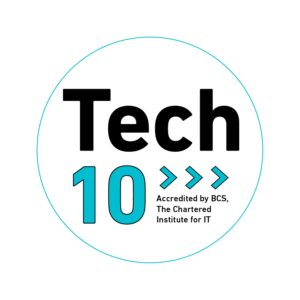
“Building on that success, Wawiwa’s Data Analyst Program has also been accredited by the Institute of Analytics (IoA) as an IoA Endorsed Course. The IoA is the UK’s leading professional body for analytics and data science, and this endorsement affirms the program’s quality and relevance.”
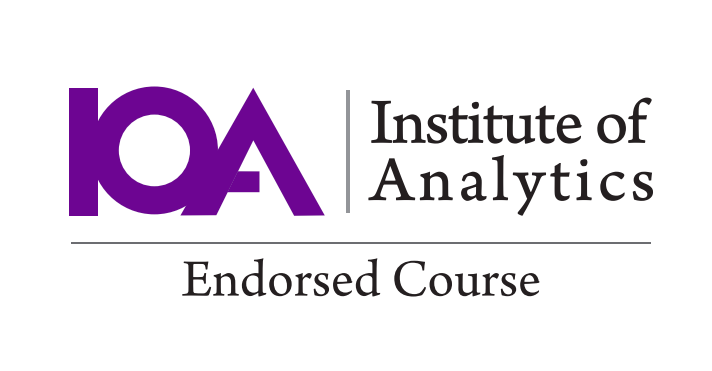
“Wawiwa’s commitment to simplifying the accreditation process ensures that tech education programs meet rigorous standards and stand out in local and global markets. With our hands-on support and global perspective, we make accreditation achievable, helping our partners deliver high-quality, industry-relevant education that truly impacts students and employers alike.”
Thanks Nofar!


